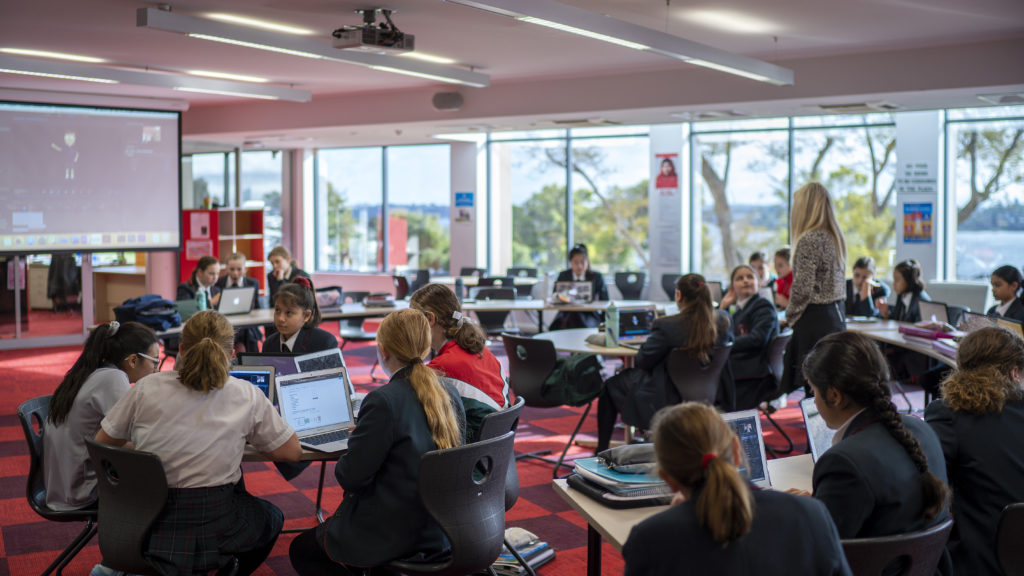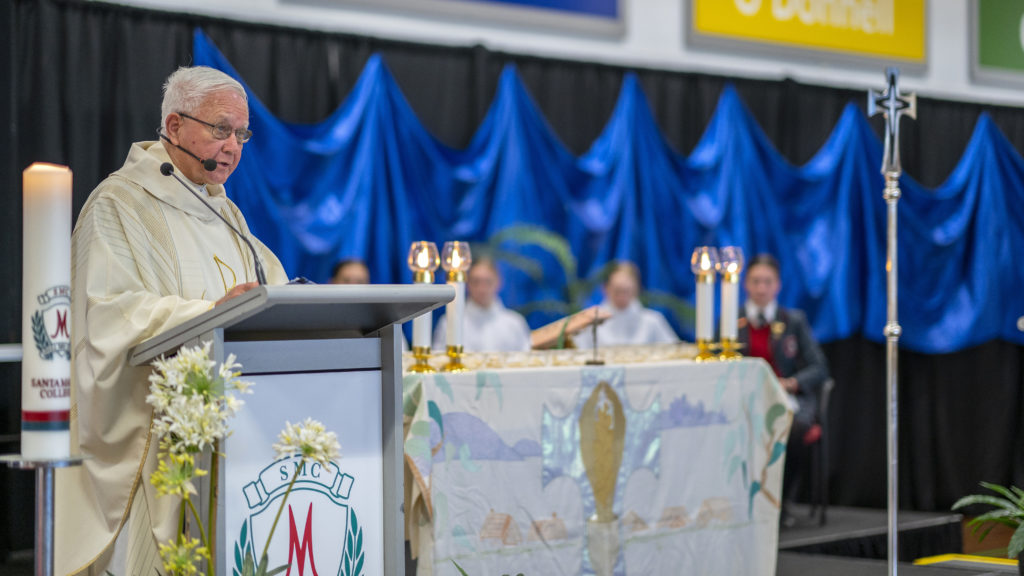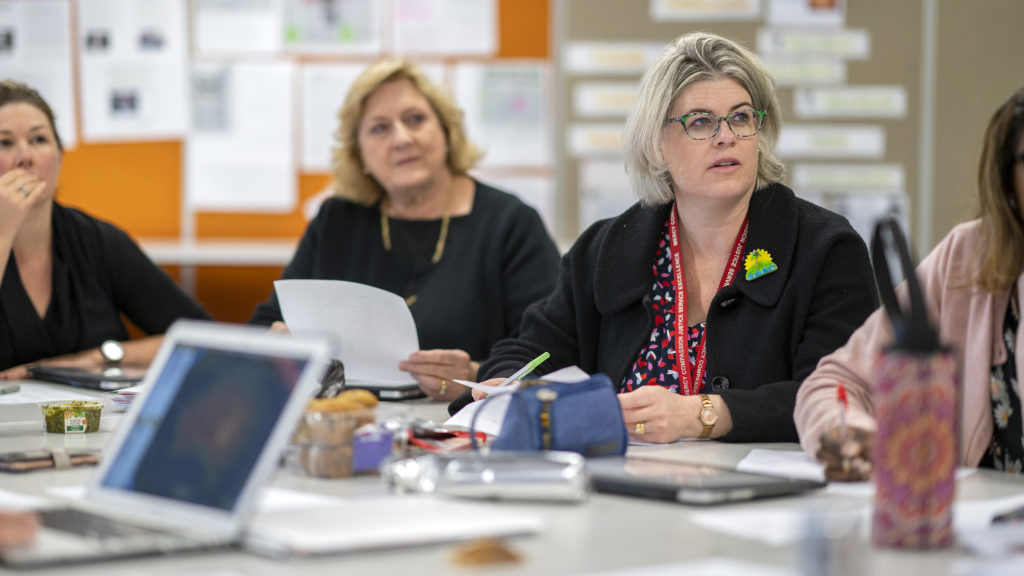Choosing a School for Your Daughter

Choosing a school for your daughter may seem like a daunting task. There are so many variables, and everyone has an opinion. It can be overwhelming. I think the first thing to remember is that ultimately, it’s about your child. You are the person who knows them best. You can see their strengths and the areas that need enrichment. You know the little things that will make a difference in their day to day schooling. You’re the expert and you should trust that expertise.
Of course, being the expert in your child doesn’t make you an expert in the differences between schools. That is going to take research and some exploration. Please do not ever judge a school on its ATAR scores alone. Yes, academic programs are important, but there is so much more to education.
The following points are designed to help direct your search and narrow your options. Good luck!
Private versus Public

Should you choose a private school when there is a perfectly good public school just down the road? All school sectors have their advantages and disadvantages. The choice ultimately depends on your family’s values and circumstances.
Private schools often have very powerful pastoral care programs. That means they invest in the staff and resources to ensure student wellbeing. They will set time aside to teach the socio-emotional skills that will hold students in good stead for a lifetime. They also invest in facilities and infrastructure that unfortunately, are far beyond the reach of public schools. Science facilities, information technology, libraries and sporting grounds are often state of the art in private schools.
Public schools have the enormous attraction of being very affordable for Australians. They provide a quality education for a small fraction of the fees of a private school. The quality of the curriculum is very similar due to strict auditing of the Australian curriculum, and you can expect good quality tuition. There is also very little evidence to suggest that a student will perform better academically at a private school than a public school. So this decision will come down to other variables.
Single-sex versus Coeducational

Single-sex schools are most common in the private sector. They are based on the belief that a single-sex education can better cater for a child’s learning needs. A girls’ school, for example, can tailor resources, teaching and learning experiences to girls. It is an aspirational environment that sets a girl up to understand that she can achieve great things in any field of work or life. This defies stereotypes and is countercultural. Girls are given double the number of opportunities for leadership positions in a girls’ school and these schools tend to be staffed and administrated by women who offer wonderful role models.
Coeducational schools are more reflective of the world beyond school. They promote intergender communication, relationships and respect. There is no doubt men and women communicate differently. Coeducational schools foster an understanding of differences and using those differences in collaboration.
School culture

The first role of a school is to keep children safe. The second is to provide a quality education. After that, a school can be whatever it chooses. It can have a religious focus, it can have an academic focus, a sporting focus, a performing arts focus, anything! That focus will have a strong impact on the culture of the school. Culture is important.
You really need to visit a school, read its literature and talk to community members to get a feel for the culture. Have a look at their social media and newsletters too. They will give you a strong indication of what is deemed important in the community.
Make sure the values and culture of a school align with your own. There is no point choosing a school and then spending years railing against its very essence. It simply doesn’t make sense. Find your people.
Staff

The most important resource any school has is its teachers. Choose a school that values and nurtures its teachers. The quality and care of teachers will inevitably impact the education of students. A school should have strong professional development and wellbeing programs for staff
Look for a staff that is clearly happy and valued by their employer. Those teachers will be deeply invested in the community, current in the science of teaching, brave and innovative. None of these qualities are possible without the support of good management.
While on a school tour, take the time to speak to teachers if the opportunity is offered. Talk to students about the quality of teachers too…kids are sometimes brutally honest.
Co-curricular offerings

Some of your best memories of school are not of the time spent in classrooms, they are of the other, extra activities that were provided. In developing a child holistically, service, sport and cultural programs are essential. This is where a child will find their tribe; in the school production, playing in a hockey team or helping prepare meals for the homeless. They will be with students of different ages who share their interests.
Make sure that the school you select offers the sort of co-curricular programs that will set your child’s passion alight. A school should be offering opportunities for all students to find their place.
Facilities

It’s true that you can’t judge a book by its cover, and you can’t judge the quality of a school by its appearance. However, we all know that environment does have an impact on our state of mind. Some schools are lucky enough to have beautiful surrounds and buildings that make them conducive to quality learning.
The appeal of a school’s facilities will depend on what you value in a school. However, apart from roomy classrooms and a quality information technology network, you should look at:
- Library and information services
- Science laboratories
- Art and design facilities
- Music rooms
- Gymnasium
- Theatre
- Sports ovals
- Play areas
- Undercover and open lunch and recreation areas
- School cafeteria
What next?
Once you have narrowed down your list of schools it is a great idea to take a few school tours. You will get a feel for the different cultures and priorities. If there is a choice, choose tours that run during school time. You will learn a lot by seeing the students at work and play. Click below to get some sample questions to ask when on your tour.
Finally...
Involve your daughter in this process. It will empower her to have input into this decision. After all, it’s her future

Lee-Elle’s Insights from the ‘Make it 16’ Forum
Lee-Elle Cooper is a passionate Year 12 student who advocates for youth engagement and political participation. She has recently returned from the Make It 16 Forum in Canberra.

With Laurissa Knowles From Valley Depths to Mountain Peaks (1993)
Laurissa Knowles (1993) has had an incredible career journey so far, from Santa Maria College Teacher to Celebrant and Councillor.

Elevating Spaces: Diana Ellis’ Signature Touch & Architecture Magic
What happens when you mix a love for art, travel, nature, and creativity with construction and building? You get the essence of Diana Ellis’ career!
- Featured
Author: Santa Maria College
Santa Maria College is a vibrant girls school with a growing local presence and reputation. Our Mission is to educate young Mercy women who act with courage and compassion to enrich our world. Santa Maria College is located in Attadale in Western Australia, 16 km from the Perth CBD. We offer a Catholic education for girls in Years 5 – 12 and have 1300 students, including 152 boarders.







